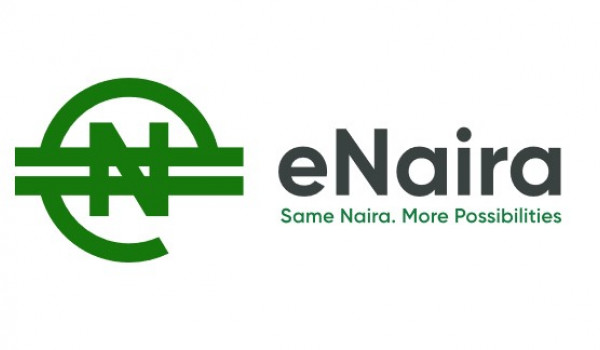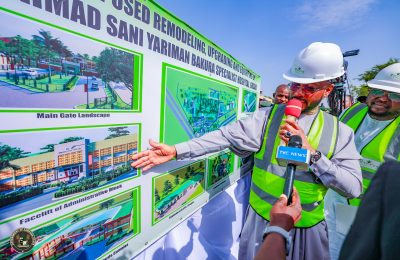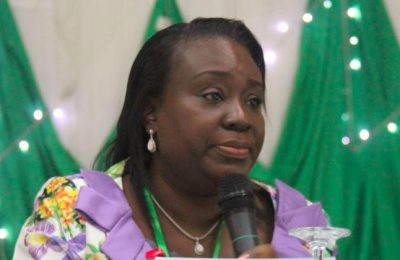By: Abdulrahman Abdulraheem
Despite the breakthroughs in recent years, Nigeria is still largely bedevilled by illiteracy as millions of adults are completely unlettered and are not able to make sense of written words, a challenge which limits their capacity and usefulness to society.
According to federal government figures released in 2022, nearly 70 million Nigerian adults, representing 31 percent of the population, are illiterates, a reduction from the 76 million (38 percent) figure recorded the previous year.

General literacy is key and the federal government has been putting in work to improve the statistics. But digital literacy is more important as it is an individual’s ability to find, evaluate, and convey information by utilising digital media platforms – a combination of both technical and cognitive abilities in using ICT.
Digital inclusion, on the other hand, involves the activities necessary to ensure equitable access to/use of information and communication technologies for participation in social and economic life – education, social services, health, social and community participation.
It is difficult, if not impossible, to separate general literacy, digital literacy, and digital inclusion because the three are related. Indeed, the extent of digital literacy in a nation determines the percentage of the populace that takes advantage of the digital space, tools, and opportunities.

To this end, Minister of Communications and Digital Economy, Professor Isa Ali Pantami is at the forefront of the march towards attaining 95 percent target for digital literacy in the next seven years, as contained in the National Digital Economy Policy and Strategy (NDEPS), 2020 – 2030.

The Central Bank of Nigeria (CBN), an integral part of the coordinated effort by the government to improve digital literacy and expand digital inclusion, kick-started a smart move in October 2021 when President Muhammadu Buhari, aided by Governor Godwin Emefiele, launched the Central Bank Digital Currency (CBDC) also known as e-Naira.
Emefiele explained it was as a store of value, a medium of exchange, and a more viable alternative to the physical naira. He said e-Naira was introduced to move the country away from a cash-based economy and empower citizens to take advantage of the digital ecosystem to send and receive money, and transact business in a faster, cheaper and uncomplicated manner.
Since the launch, the CBN has invested resources, time, and energy to enlighten Nigerians on the viability of the e-Naira and the need to get on the platform. However, the sceptical attitude with which Nigerians received the news of the launch of digital currency made the apex bank’s job a bit complicated initially.
Some Nigerians thought there was no need for digital currency since there’s online/internet banking. Others believed it was the same thing as cryptocurrency, which the CBN repeatedly declared volatile. Another set of Nigerians didn’t even give it a thought, while those without smartphones and bank accounts ruled themselves out.
After a broad enlightenment on e-Naira, people in urban areas are now aware it is convenient, immune to network challenges common with internet banking and different from cryptocurrency that is unregulated, unstable, and risky. They know that without bank accounts and smartphones, they can use the platform which has about three million subscribers.
In recent months, the CBN e-Naira team has focused more on rural areas as well as urban market women, artisans, and roadside sellers of basic consumables. The team has traversed the length and breadth of the country in search of the educationally disadvantaged and financially handicapped citizens who may not have access to the mass media.
The unit organised a sensitisation workshop for Keke (tricycle) riders in Kano early this year to teach them how to get onboard the e-Naira and operate it. At the end of the programme, the excited riders agreed to start accepting it as a mode of payment from their passengers willing to use such an option.
This week, the CBN team also took its rural advocacy to Gadun Albasa, a suburb of Kano, where more than 400 people were trained on the usage of e-Naira. The apex bank believes the beneficiaries will be able to train persons within their families and communities.
During the programme witnessed by Economic Confidential, Deputy Manager, CBN Digital Team, Abdul Shadrach said the main purpose was to get the participants acquainted with the digital version of the legal tender and to listen to the benefits of participating in the CBDC ecosystem.
Shadrach said it is unfair how learned people benefit from digital products to a large extent, leaving the educationally disadvantaged behind. He said the Kano event was part of efforts to change the narrative and give everyone a chance to experience the ease and peace that come with digital currency.
“One of the issues is that most times when we release digital products, it’s only the learned ones that benefit. The less privileged are relegated. This time, we want to include every individual,” he stressed.
“Even if you don’t have a smartphone, CBN has the USSD version of e-Naira. Dial *997# and enjoy the service. You see people gathered here regardless of academic status. We are hoping they will become ambassadors and teach others.”
Urging Nigerians to fully embrace the federal government’s cashless policy, the official called for continuous education on not just e-Naira but the ecosystem in its entirety, so as to ease acceptability of similar products when they are released in the future.
It is obvious that the CBN has made up its mind to de-emphasise the elite class, who are already enlightened, and target traders, artisans, farmers and the likes in rural areas as they lack information on how they can do business better and faster.
With consistent advocacy of digital currency, Nigerians will in a few years forget about keeping cash and the cash crunch they are suffering now. By then, everyone including roadside sellers, mechanics, Okada riders, and so on, would be accepting e-Naira for payments.
Abdulraheem, an economic journalist, writes from [email protected]
READ ALSO FROM NIGERIAN TRIBUNE








